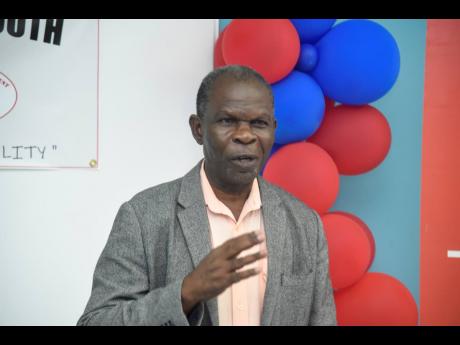Cabbies question wisdom behind JUTC fare cut
Taxi associations have blasted the Government’s decision to reduce the Jamaica Urban Transit Company (JUTC) fares as a political move, one they believe will have a serious impact on the bottom line of private transport operators.
“The commuters who would now take a taxi, ... they would prefer to wait on the JUTC bus because that fare would be $70 when the fare on taxi would be $150? I would do the same thing because of [the] economic situation; there’s no money to spend,” Transport Operators Development Sustainable Services (TODSS) President Egerton Newman told The Gleaner.
On Tuesday, Minister of Finance Dr Nigel Clarke outlined a phased two-year temporary reduction in the regular fares of the JUTC from $100 to $70 come January, and, for children, from $30 to $25. The fares for pensioners will also be reduced from $40 to $30.
In April 2024, regular fares will be further decreased to $50, children’s fares to $20, and pensioners’ to $25.
Clarke said the reduction, which is expected to cost the Government $1 billion, was done to cushion the impact of the recent fare hike for public passenger vehicles on the overall inflation rate.
Last month, the Government announced a 19 per cent increase in public passenger fares, excluding the JUTC and the Montego Bay Metro.
A further 16 per cent increase was also announced to take effect in April 2024.
But president of the All Voice Transportation Group, Lorraine Oscar Finnikin, has dismissed this explanation.
“JUTC is presently moving somewhere about 30 per cent of the commuting public within the KMTR (Kingston Metropolitan Region). What effect that 30 per cent reduction will have in cushioning inflation? They can’t tell us that,” he told The Gleaner. “And, if they are doing a reduction, whether in fare or anything, so that we don’t have a fallout because of high inflation, … then such reduction cannot be concentrated within just a particular geographical location,” he said.
Economist Dr Adrian Stokes told The Gleaner that the latest update from the Bank of Jamaica (BOJ) indicates that recent increases in PPV fares will place an upward pressure on projected inflation, and that the BOJ also noted that fiscal action in the form of a subsidy to the JUTC could serve to alleviate some of the inflationary pressure.
And while “the macroeconomic logic of the fiscal subsidy tempering some of the inflationary pressure is clear”, he said the anticipated upward pressure on the inflation rate because of the PPV fare increase is expected to be transitory.
“In other words, I do not expect [a] second round price effects from the PPV fare increase. In fact, the economic risk that’s emerging in Jamaica is not inflationary, but slower-than-expected GDP growth. This risk will only heighten going forward as tight monetary policy starts to have real effects on the economy,” he said.
Meanwhile, Finnikin, who said the majority of his 450-member organisation operate within the KMTR, highlighted that no consultation was held with the transport steering committee, which was established in July to tackle issues affecting the sector. He also said the fare reduction is puzzling, given the major losses that the JUTC has experienced over the years.
For the current financial year, taxpayers are expected to fund a projected operational loss of $11.4 billion.
In the meantime, Newman, who heads an 11,000-member organisation, remains optimistic.
“We are not worried; we are strong. We’ve been in this business for a very long time and we are going to ensure that we remain in business,” he said.

